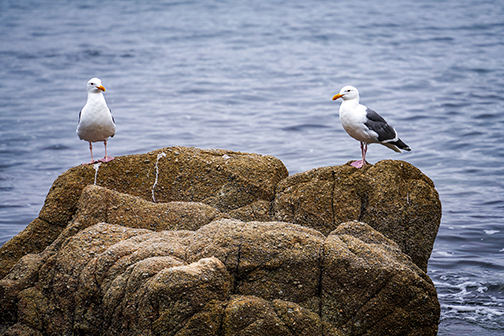
Photo by Charly SHELTON
By Mary O’KEEFE
It may seem a little like déjà vu but the Centers for Disease Control and Prevention (CDC) states, “While the current public health risk is low, CDC is watching the situation carefully and working with states to monitor people with animal exposure.” This time the disease being monitored is not COVID-19 but bird flu, and this time no one seems to be waiting for the disease to spread.
In December Gov. Gavin Newsom declared a state of emergency to enhance the state’s response to avian influenza A (H5N1), commonly known as bird flu, following the detection of bird flu in Southern California dairy cows and across 16 states.
Since the spread of COVID, medical organizations and local leaders are taking precautions in a proactive manner instead of waiting for it to get worse. The Los Angeles County Dept. of Public Health has confirmed a human case of H5 bird flu in an adult who was exposed to livestock infected with the H5 bird flu at a worksite, according to LA County Dept. of Public Health.
The person had mild symptoms and was treated with antivirals.
The first severely ill hospitalized patient, in Louisiana, had showed signs of mutation.
“This marks the first instance of severe illness linked to the virus in the United States. The case was confirmed by the Centers for Disease Control and Prevention on Friday, Dec. 13. Since April 2024, there have been a total of 61 reported human cases of H5 bird flu reported in the United States,” according to CDC.
Currently there is no evidence of person-to-person spread of this virus. CDC and California Dept. of Public Health (CDPH) are following all cases of bird flu. They continue outreach to California farmers/agriculture workers.
CDPH does have some suggestions for people to remain safe including:
Do not drink raw milk or eat raw cheeses and undercooked meat products. Do not feed these items to your pets. Avoid unprotected contact with sick or dead animals, birds or any materials contaminated with bird feces. Avoid handling wild birds, even if they appear healthy. Wear a well-fitting mask and gloves and practice good hand hygiene. Some birds may carry the virus without showing symptoms. Report sick or dead birds. Contact local animal control if you see sick or dead birds. Protect pets or poultry; keep them away from wild animals and birds. Ensure that wild birds cannot defecate into areas holding or housing pet birds or poultry. Take down bird feeders and communal bird baths to reduce the risk of the virus spreading from bird-to-bird. And everyone should receive a seasonal flu vaccine. While this vaccine does not prevent avian influenza infection, it can reduce the risk of getting sick with human and bird flu viruses at the same time.
There have been some food recalls, most recently for cat food.
Northwest Naturals voluntarily recalled one batch of its cat food after a house cat died of bird flu and the raw food it ate was found to be contaminated with the bird flu virus. Dozens of cats have contracted bird flu in the U.S. since the outbreak began earlier this year.
The recall of Northwest Naturals include Feline Turkey Recipe sold in two pound plastic bags with a best use by date of 05/21/26 to 05/23/2026. The food was sold in 12 states including California.
In early December the California Dept. of Food and Agriculture also announced a recall of raw milk products at Valley Milk Simply Bottled in Stanislaus County. The recall came after the detection of the bird flu.
CVW will continue to follow the bird flu investigation and spread.
